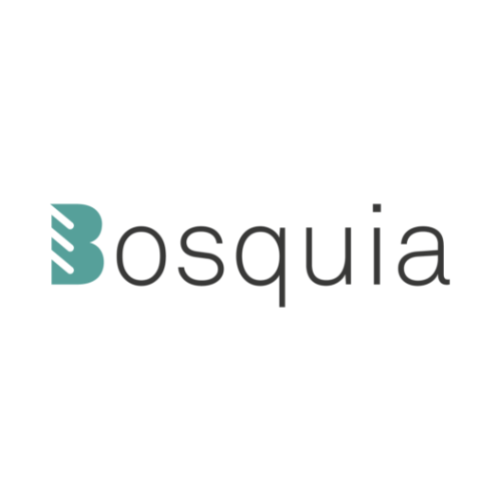

Bosquia Nature, S.L.

Asturias, Spain
November 2022
Environmental consulting
Service with Significant Environmental Footprint
Portugal,
Spain
Nos dedicamos a realizar acciones de reforestación con árboles autóctonos. Creamos bosques gracias a la colaboración de empresas privadas y particulares que quieren, sumándose a nuestras iniciativas, contribuir a la lucha contra el cambio climático, acabar con la deforestación y compensar emisiones de CO2. Somos especialistas es: Proyectos RSC Actividades Teambuilding Calculo de huella de carbono Eventos neutros ¡Súmate a la reforestación y deja una huella verde! We carry reforestation activities with native trees. We create forests with both the participation of private companies and individuals who want to help fight climate change, stop deforestation, and offset CO2 emissions by participating in our initiatives. We are specialists in: CSR projects Team building activities Carbon footprint calculation Neutral events Join the reforestation and leave a green footprint!
Overall B Impact Score
Governance 19.4
Governance evaluates a company's overall mission, engagement around its social/environmental impact, ethics, and transparency. This section also evaluates the ability of a company to protect their mission and formally consider stakeholders in decision making through their corporate structure (e.g. benefit corporation) or corporate governing documents.
What is this? A company with an Impact Business Model is intentionally designed to create a specific positive outcome for one of its stakeholders - such as workers, community, environment, or customers.
Workers 16.6
Workers evaluates a company’s contributions to its employees’ financial security, health & safety, wellness, career development, and engagement & satisfaction. In addition, this section recognizes business models designed to benefit workers, such as companies that are at least 40% owned by non-executive employees and those that have workforce development programs to support individuals with barriers to employment.
Community 27.2
Community evaluates a company’s engagement with and impact on the communities in which it operates, hires from, and sources from. Topics include diversity, equity & inclusion, economic impact, civic engagement, charitable giving, and supply chain management. In addition, this section recognizes business models that are designed to address specific community-oriented problems, such as poverty alleviation through fair trade sourcing or distribution via microenterprises, producer cooperative models, locally focused economic development, and formal charitable giving commitments.
Environment 60.3
Environment evaluates a company’s overall environmental management practices as well as its impact on the air, climate, water, land, and biodiversity. This includes the direct impact of a company’s operations and, when applicable its supply chain and distribution channels. This section also recognizes companies with environmentally innovative production processes and those that sell products or services that have a positive environmental impact. Some examples might include products and services that create renewable energy, reduce consumption or waste, conserve land or wildlife, provide less toxic alternatives to the market, or educate people about environmental problems.
What is this? A company with an Impact Business Model is intentionally designed to create a specific positive outcome for one of its stakeholders - such as workers, community, environment, or customers.
Customers 4.8
Customers evaluates a company’s stewardship of its customers through the quality of its products and services, ethical marketing, data privacy and security, and feedback channels. In addition, this section recognizes products or services that are designed to address a particular social problem for or through its customers, such as health or educational products, arts & media products, serving underserved customers/clients, and services that improve the social impact of other businesses or organizations.